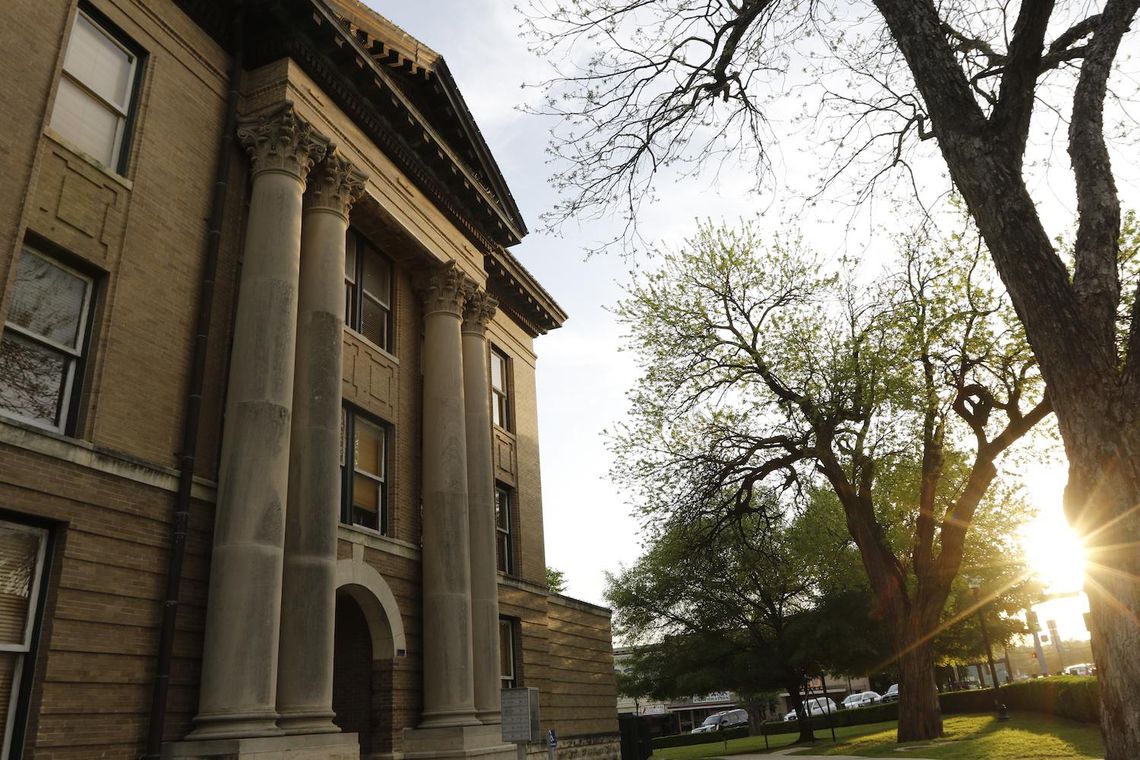The Hays County Commissioners Court discussed the first steps toward criminal justice reform Tuesday after hearing a report on a criminal justice summit held last week and plans for the formation of a commission.
Chief of Staff Alex Villalobos gave a presentation on the summit, which was a closed-door event that included representatives from law enforcement bodies throughout the county, defense attorneys, district and county court-at-law judges, the bail bond board, and others. Villalobos described the summit as a “cost assessment” and went over some of the information presented at the summit. From 2014 to 2018, direct inmate costs have increased more than 300 percent and capital outlay has increased almost 900 percent, Villalobos said. The Hays County jail population has increased, as has the number of outsourced inmates as the jail reaches capacity.
“For 2018,” Villalobos said, “those numbers are getting pretty close together.”
Villalobos also listed the top six offenses in Hays County as far as number of arrests: possession of marijuana less than 2 ounces, driving while license invalid, driving while intoxicated, assault-family member, possession of a controlled substance and theft of property. The summit included discussions of cite and release measures and other solutions available under current laws, Villalobos said, as well as discussions of potential outside resources. For example, the state does not reimburse local jails for holding inmates awaiting transfer to a state facility, and the county spends about $100 per day on each of these inmates.
Villalobos highlighted one statistic illustrating the culmination of current criminal justice operations in Hays County.
“The one issue that we see across the board is that from 2014 to 2018, Hays County has seen an increased population of 16 percent, but we’ve also seen that our incarceration rate in days has increased by 82 percent.”
Villalobos said that the summit confirmed the need for a criminal justice commission, likely with subcommittees, to examine the different aspects of the county’s criminal justice commission and find ways to both save money and provide better service to Hays County residents. The county commissioners will be asked to make appointments to the group, which will then present recommendations to the commissioners court.
“We have to have several different perspectives. We want it to be a well-versed commission,” Villalobos said.
Though the county commissioners will be asked to make appointments, the criminal justice commission was put on Tuesday’s agenda as just a discussion item, with no action. Moreover, the commissioners asked for more details and more information about the types of people who should be on the criminal justice commission.
Villalobos said the commission will need to have professionals from different fields connected to the criminal justice system and that the county judge and commissioners will need to “look at it from the dollars and cents perspective” as recommendations come in.
Precinct 4 Commissioner Walt Smith said that he would have liked to have had more input into the process earlier.
“I would have hoped that we as commissioners would have been involved in that process other than ‘I want you to appoint a member to that process,’” Smith said. “As we look at this, one concern I have is we had an event on Friday that — I wasn’t invited, I wasn’t there. I don’t know how many county employees, how much time, how much effort went into this.”
County Judge Ruben Becerra said that the summit was closed-door to avoid “theatrics” and to look at research that his office had done regarding the county’s criminal justice system. He assured Smith that his office wants buy-in from the community, commissioners court and everyone else.
“We cannot continue business as usual,” Becerra said. “That is a fact.”
The county judge said the summit showed that criminal justice reform has a chance “to get legs and move forward” in Hays County.
“And that’s why we have brought it to commissioners court, so that the commissioners court can help make sure they have a handprint on this, in addition to making sure we have proper representation from each office,” Becerra said.
Smith reiterated his complaint about the summit but said he supports the commission.
“I’m supportive of addressing these issues. I am. I commend you for addressing these issues. … My concern is that for us to look at this issue, and for you to sit here and say, ‘It was deliberately closed … however I notified you by letting you know I’m having a press conference,’ that’s disingenuous,” he said. “I want to see this be successful. That’s not a way to make this successful.”
Precinct 1 Commissioner Debbie Gonzales Ingalsbe had a request for specific information.
“I know that a public defender’s office has been mentioned. My only ask is that — and I know, Mr. Villalobos, that you mentioned it — that we would do a detailed assessment on what we’re currently spending … and what a public defender’s office would cost us,” she said. “… This is a big portion of our budget. I know this needs to be addressed.”
Becerra said the criminal justice commission will be back on the court’s agenda for its next meeting on March 26.









